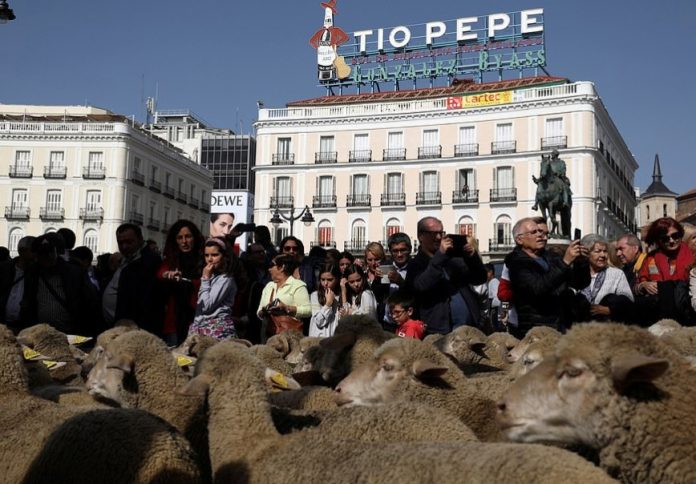Madrid’s regional government on Thursday cancelled the traditional annual grazing of flocks of sheep in the centre of the Spanish capital, scheduled for Sunday, as a preventive measure against a new type of bluetongue disease, Spanish media reported.
Bluetongue, spread by insects, can be fatal to domestic ruminants such as sheep, cattle and goats. The disease is common in different parts of Spain and has different variants.
A new variant, BTV3, has been circulating in the Netherlands, northern Belgium and western Germany since last year and has recently appeared in south-west Spain, Ministry of Agriculture figures show.
Although no cases of the new variant have been detected in the Madrid area, authorities have cancelled border crossings as a precaution. A spokesman for the Madrid government’s agriculture department told Reuters:
“We are in an area where we have to limit the concentration and movement of livestock.”
Fiesta de la Trashumancia
Every year since 1994, as part of the annual “Fiesta de la Trashumancia” event, sheep herders drive their cattle through the city along a track that once ran through undeveloped countryside on their way to winter pastures in southern Spain.
The shepherds pay a symbolic fee in recognition of a 1418 agreement with the city council that set a fee of 50 maravedis – medieval copper coins – per 1,000 sheep brought through the central square of Sol and Gran Via.
The Fiesta de la Trashumancia (“Feast of Migrations”) originated as an agricultural practice to prevent overgrazing, and the revived migrant festival is now held every autumn, usually in late October.
A modern tribute to the ancient rite was devised by the Transhumance and Nature Foundation.
Now masses of sheep, and sometimes horses and bulls, gather in the Spanish capital once a year. Before the flocks march through the city, women in headdresses called mantillas dance the traditional Spanish “jota” along with men in wide trousers tucked into long socks. The dancers’ shoes are adorned with spikes – a sign of respect for the pastors who use them to walk on muddy terrain.
